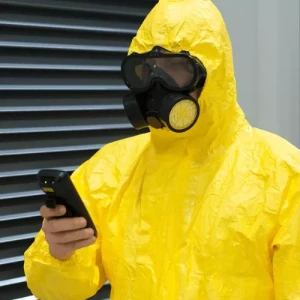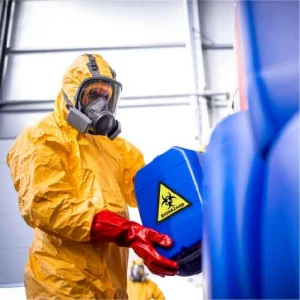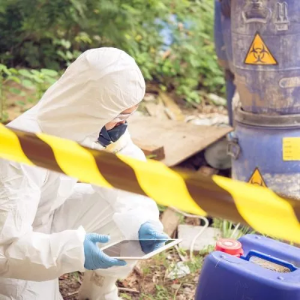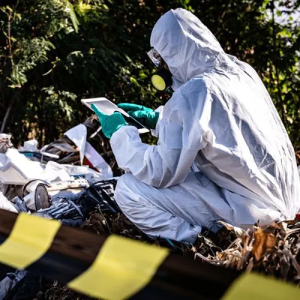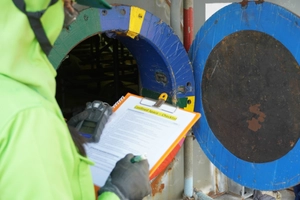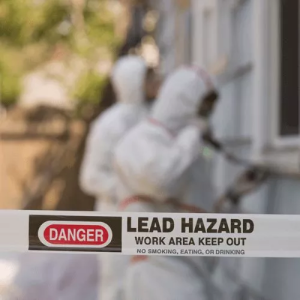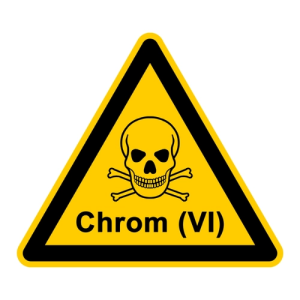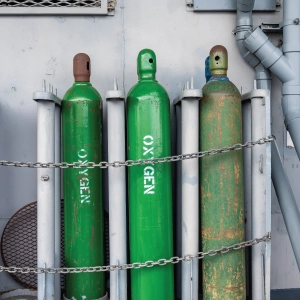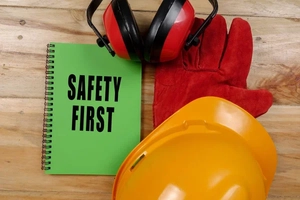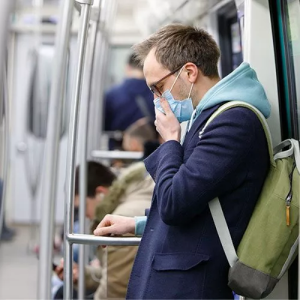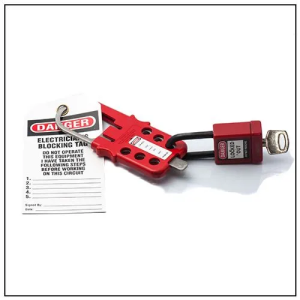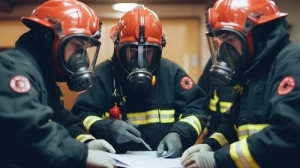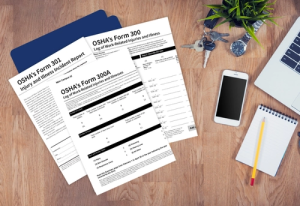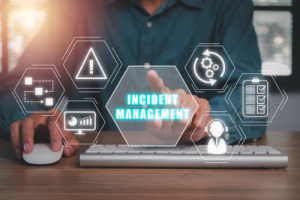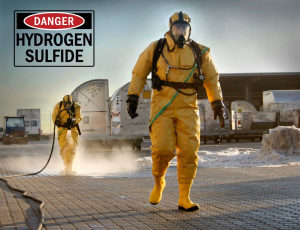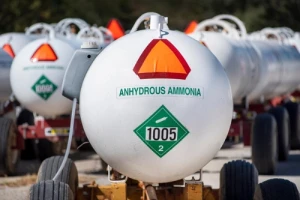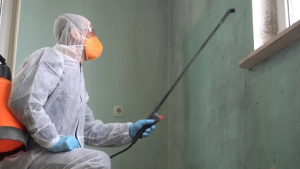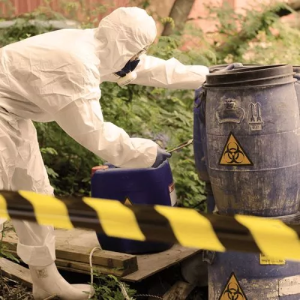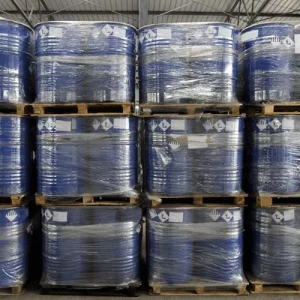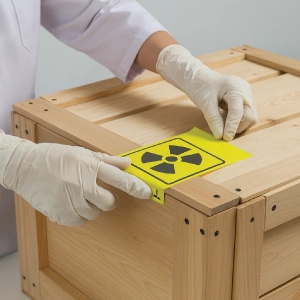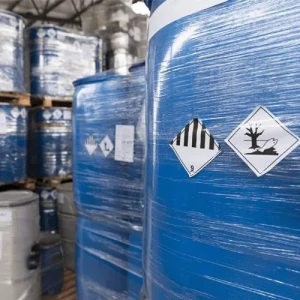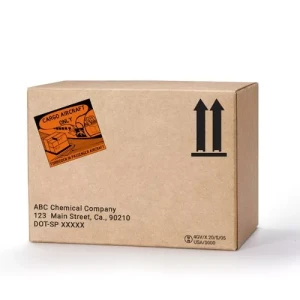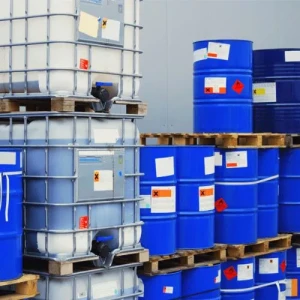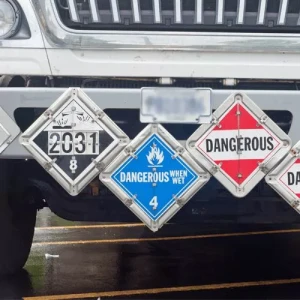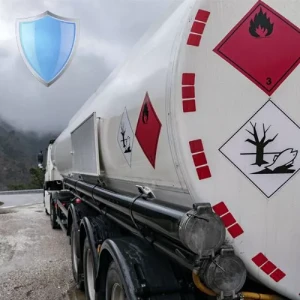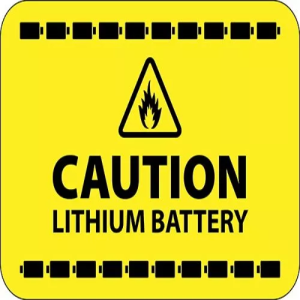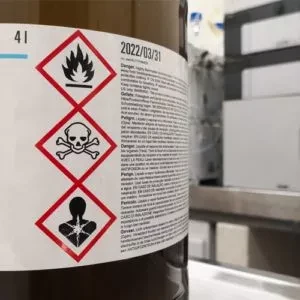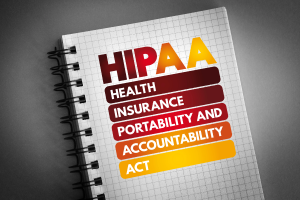Shipping Lithium Batteries: Excepted Cells and Batteries (U.S. DOT, ICAO/IATA, IMO/IMDG)
- In accordance with U.S. DOT HMR (49 CFR Part 171 - 180), IATA DGR (Section 1.5), and IMDG Code (Section 1.3.1)
- Available in:
 English |
English |  Español
Español - Train at your convenience, across all devices
- Engage with audio narration for on-the-go study
- SCORM-ready, on-demand digital, virtual instructor sessions, or on-site course offerings
0.4
Bulk Buying
| Employee | Per Seat |
|---|---|
| 2-10 | $168.29 |
| 11-20 | $166.59 |
| 21-50 | $164.89 |
| 51-100 | $161.49 |
| 101-250 | $158.09 |
Course Facts
Training Duration
Learning Type
Course Access Validity
Device Support
Certificate Validity
The Shipping Lithium Batteries: Excepted Cells and Batteries Training Course provides guidance for compliant transportation of excepted lithium cells and batteries. It explains shipping requirements under key U.S. and international hazardous materials regulations.
This course follows the U.S. Department of Transportation (DOT) Hazardous Materials Regulations (HMR), 49 CFR Parts 171–180. It also aligns with ICAO Technical Instructions, IATA Dangerous Goods Regulations (DGR), and the International Maritime Dangerous Goods (IMDG) Code.
These regulations apply to lithium battery shipments by highway, rail, air, and vessel.
The training focuses specifically on excepted lithium cells and batteries. It applies to the following shipment types:
- Stand-alone lithium cells or batteries meeting excepted provision
- Lithium cells or batteries packed with equipment
- Lithium cells or batteries contained in equipment
Learners receive general awareness, function-specific, and security awareness training required under DOT HMR. The course supports compliance for employees who prepare, handle, package, mark, label, or offer excepted lithium battery shipments for transport.
Who Needs This Shipping Lithium Batteries: Excepted Cells and Batteries Training?
This lithium battery shipping training is required for employees whose job functions affect the safe transportation of excepted lithium cells and batteries, including:
- Hazmat employees preparing excepted lithium battery shipments for transport.
- Shipping and receiving personnel handling lithium battery shipments.
- Warehouse supervisors overseeing lithium battery packaging and labeling.
- Freight forwarders coordinating domestic or international battery shipments.
- Air cargo personnel shipping lithium batteries under ICAO/IATA rules.
- Ground carriers transporting lithium battery shipments by highway or rail.
- Maritime shipping staff managing IMDG lithium battery cargo.
- Customs clearance agents processing lithium battery documentation.
- Dangerous goods safety advisors and compliance officers.
- E-commerce fulfillment centers shipping lithium batteries with products.
- Manufacturers and distributors offering lithium batteries for transport.
- Third-party logistics (3PL) providers managing battery shipments.
- Employees responsible for lithium battery safety training and compliance oversight.
This lithium-ion battery shipping training is essential for organizations that ship smaller or excepted lithium batteries domestically or internationally.
Why Choose Our Shipping Lithium Batteries: Excepted Cells and Batteries Training?
- Meet U.S. DOT, ICAO/IATA, and IMDG requirements for excepted lithium battery shipments.
- Gain practical lithium battery shipping training through real-world packaging and marking scenarios.
- Satisfy hazmat employee requirements for compliant lithium-ion battery shipping training.
- Understand complex lithium battery regulations in clear, simple language.
- Fulfill general awareness and function-specific hazardous materials training obligations.
- Reduce errors, delays, and costly lithium battery shipment violations.
Shipping Lithium Batteries: Excepted Cells and Batteries (U.S. DOT, ICAO/IATA, IMO/IMDG) Course Syllabus
This Battery Safety Training course consists of 4 modules broken down into 12 lessons. Students are required to take each lesson in sequential order as listed below.
Introduction
Module 1: HMR General Awareness
This module explains the U.S. DOT Hazardous Materials Regulations (HMR), IATA Dangerous Goods Regulations (DGR), and the IMDG Code.It helps learners understand key requirements for transporting hazardous materials by ground, air, and sea.
- Lesson 1: The Hazardous Materials Regulations
- Lesson 2: The Hazardous Materials Table
Module 2: Regulatory Requirements
This module explains regulatory requirements for shipping lithium cells and batteries.It covers the classifications used by authorities when transporting lithium batteries.
- Lesson 3: Lithium Cells and Batteries
- Lesson 4: Regulatory Overview
- Lesson 5: Classification of Lithium Cells and Batteries
Module 3: Function Specific Requirements
This module explains proper packaging, marking, and labeling requirements for lithium ion and lithium metal cells and batteries.It covers placarding rules for vehicles, containers, and other transport modes.The module also highlights the importance of shipping papers and key required elements.
- Lesson 6: General Requirements for Shipping Papers
- Lesson 7: General Packaging Requirements
- Lesson 8: General Marking Requirements
- Lesson 9: General Labeling Requirements
- Lesson 10: General Placarding Requirements
Module 4: Shipping Guides
This module covers packaging and hazard communication for excepted lithium cells and batteries.It explains rules for stand-alone, packed with, or contained-in-equipment batteries.The module highlights differences affecting shipping guidelines for each category.
- Lesson 11: Stand-Alone Lithium Batteries: Excepted (Highway, Rail, and Vessel ONLY)
- Lesson 12: Lithium Batteries Packed with OR Contained in Equipment: Excepted (All Modes of Transportation)
Final Examination
Frequently Asked Questions
A fully regulated lithium-ion cell or battery includes:
- A cell with a Watt-hour rating greater than 20 Wh.
- A battery with a Watt-hour rating greater than 100 Wh.
A fully regulated lithium metal cell or battery includes:
- A cell with a lithium content greater than 1 gram.
- A battery with a lithium content greater than 2 grams.
Fully regulated batteries must follow all DOT, IATA, and IMDG shipping requirements due to their higher energy content and potential hazards.
A smaller lithium-ion cell or battery includes:
- A cell with a Watt-hour rating equal to or less than 20 Wh.
- A battery with a Watt-hour rating equal to or less than 100 Wh.
Highway and rail exceptions:
- A cell with a Watt-hour rating not exceeding 60 Wh.
- A battery with a Watt-hour rating not exceeding 300 Wh.
A smaller lithium metal cell or battery includes:
- A cell with a lithium content equal to or less than 1 gram.
- A battery with a lithium content equal to or less than 2 grams.
Highway and rail exceptions:
- A cell with a lithium content not exceeding 5 grams.
- A battery with a lithium content not exceeding 25 grams.
Smaller batteries have reduced shipping restrictions but must still follow applicable DOT, IATA, and IMDG guidelines for safe transport.
Yes, the Shipping Lithium Batteries: Excepted Cells and Batteries Training course meets the training requirements for shipping lithium cells and batteries as required by the DOT HMR (40 CFR Part 171-180), IATA DGR (Section 1.5), and IMDG Code (Section 1.3.1).
Lithium batteries are widely used to power laptops, smartphones, smart watches, medical devices, and vehicles. Their high energy density and flammable electrolytes classify lithium ion and lithium metal cells as hazardous materials (hazmat).
The U.S. Department of Transportation (DOT) requires all hazmat shipments to follow Hazardous Materials Regulations (HMR), Title 49 – Transportation.
All employers and employees who prepare or transport hazardous materials by highway, rail, air, or water must receive proper training. For lithium batteries transported by air or vessel, additional rules apply under IATA Dangerous Goods Regulations (DGR) and the IMDG Code.
Personnel handling lithium batteries must complete adequate training to comply with these international regulations. Hazmat training requirements for lithium cells and batteries are outlined in Subpart H of DOT HMR Part 172, Section 1.5 of IATA DGR, and Section 1.3.1 of IMDG Code.
This lithium battery shipping training is required for employees whose job functions affect the safe transportation of excepted lithium cells and batteries, including:
- Hazmat employees preparing excepted lithium battery shipments for transport.
- Shipping and receiving personnel handling lithium battery shipments.
- Warehouse supervisors overseeing lithium battery packaging and labeling.
- Freight forwarders coordinating domestic or international battery shipments.
- Air cargo personnel shipping lithium batteries under ICAO/IATA rules.
- Ground carriers transporting lithium battery shipments by highway or rail.
- Maritime shipping staff managing IMDG lithium battery cargo.
- Customs clearance agents processing lithium battery documentation.
- Dangerous goods safety advisors and compliance officers.
- E-commerce fulfillment centers shipping lithium batteries with products.
- Manufacturers and distributors offering lithium batteries for transport.
- Third-party logistics (3PL) providers managing battery shipments.
- Employees responsible for lithium battery safety training and compliance oversight.
This lithium-ion battery shipping training is essential for organizations that ship smaller or excepted lithium batteries domestically or internationally.
No, there are no prerequisites for this course.
This course provides function-specific training for shipping “excepted” or “smaller” lithium batteries as required by DOT HMR, IATA DGR, and IMDG Code.
However, if you ship lithium batteries and other hazardous materials, we strongly recommend that you enroll in our DOT Hazmat Transportation: Advanced General Awareness (10 Hour) Training course before you enroll for the Shipping Lithium Batteries training in order to fully understand the requirements of the U.S. DOT’s Hazardous Material Regulations (HMR; 49 CFR Parts 171-180).
The certification is valid for two years in accordance with U.S. Department of Transportation (DOT) regulations. Hazmat employees must receive recurrent training at least once every two years.
For employees involved in shipping lithium batteries by air, additional requirements apply. The Federal Aviation Administration (FAA) and International Air Transport Association (IATA) Dangerous Goods Regulations (DGR) require recurrent training every two years.
Employees whose job functions directly affect hazardous materials transportation must complete initial training within 90 days of employment or a change in job duties.
This same Lithium Batteries Shipping Training course can be used for re-training/refresher training purposes.
Certificate of Completion: Immediately after passing the final exam, you can download, save, or print your certificate in PDF format.
Validity: The course certificate is valid for two years.
Renewal: Simply take this course in 24 months to maintain compliance and stay current on regulations regarding transportation of lithium batteries.
COURSE OBJECTIVES
Course Objectives
After completing the course, the learner will be able to:
- Fully understand the various regulatory requirements applicable to the transportation of lithium cells and batteries by various modes of transportation.
- Understand the training requirements for hazmat employees.
- Locate the pertinent information on the Hazardous Materials Table (HMT) that may be required on shipping papers.
- Understand the general requirements for packaging, marking, labeling, and placarding hazardous materials.
- Explain the hazards associated with handling, storing, and transporting lithium cells and batteries.
- Describe the best practices for the safe use and storage of lithium cells and batteries.
- Understand the shipping guidelines for “smaller” or “excepted” lithium cells and batteries that may be shipped separately, with equipment, or contained in equipment.
- Understand the exceptions for low production runs and prototypes.
- Understand the protocols for safe disposal of lithium cells or batteries; and
- Recall the different types of extinguishing agents required to fight fires caused by lithium metal and lithium-ion batteries.
Choose Your Ideal Training Format:



Virtual Instructor-Led
$249.00/Seat (minimum 10 seats)

Client-Site In-Person
$750.00/Seat (minimum 10 seats)
The DOT regulations for shipping lithium batteries are complicated but this course made learning very easy. I also liked that the course is fully narrated.
As a seasoned professional, this lithium ion battery shipping training refreshed my knowledge and helped me apply regulations to daily field challenges.
The course structure was well designed, taking me through the complexities of the lithium battery regulations of the different regulators.
The details to ship small and excepted lithium batteries were explained very simply in this training course. Good work!
I always make sure to keep up with the latest rules for supplying dangerous goods, like lithium batteries. Staying updated on these regulations is an important part of doing my job to make sure of my team's safety.
My employer arranged in-person lithium battery shipping training for our team. The practical scenarios were invaluable, and the trainer was knowledgeable and approachable. I highly recommend this course for anyone in the industry.
The ROI of Online Safety Training
Discover the value of our efficient alternative to live training, and calculate your return on investment.


Recommended Courses
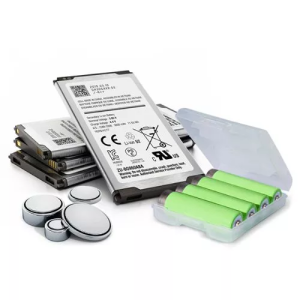
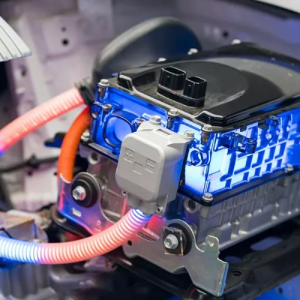

For Corporate Orders and Inquiries please reach out to our sales team at (310) 498-0546
By signing up you agree to receive marketing emails.
Be assured we will never spam you!

 EN |
EN |  ES
ES